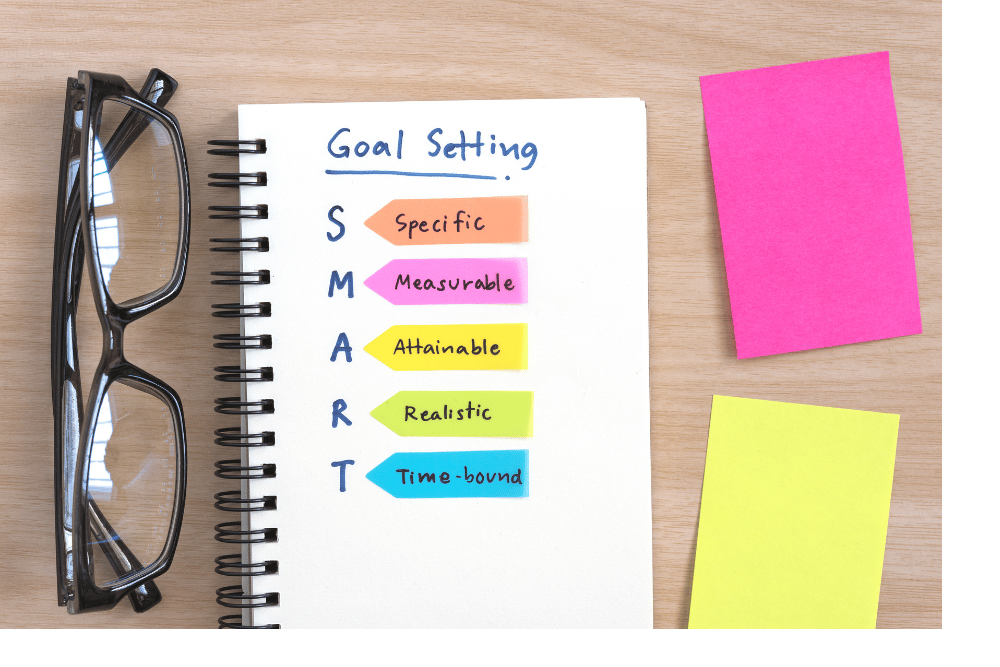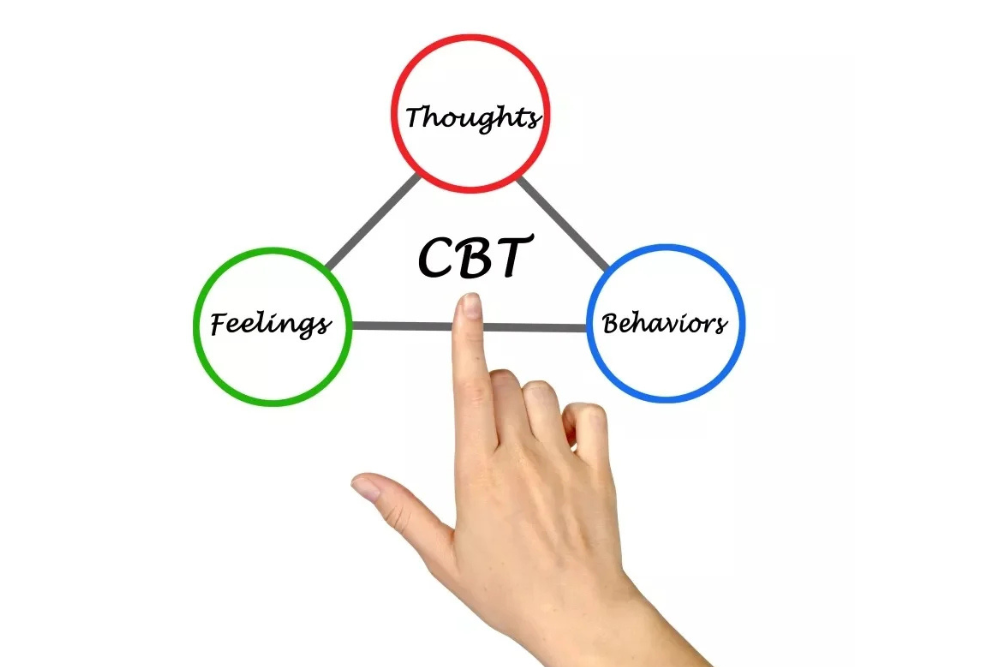- CBT for Addiction and Co-occurring Disorders
- What is Cognitive Behavioral Therapy for Addiction Treatment?
- How Does CBT Work?
- CBT Techniques for Substance Abuse
- Exposure Therapy
- Cognitive Reframing
- Journaling or Thought Records
- Behavioral Experiments
- Stress Reduction
- Role Playing
- Setting Incremental Goals
- Benefits of Cognitive Behavioral Therapy for Addiction
- CBT for Substance Abuse at Avenues Recovery
One of the most popular and successful treatments for addiction is cognitive-behavioral therapy (CBT). CBT for addiction is a hands-on, fast-acting approach that can be practiced with an individual therapist, in a group, or even alone. At Avenues Recovery, we have seen the benefits of CBT for substance abuse firsthand. For many, CBT becomes the bridge from struggle to sustained sobriety.
Key Takeaways on CBT for Addiction
- Cognitive-behavioral therapy (CBT) helps treat addiction by identifying triggers and rewiring thoughts and habits.
- CBT employs practical techniques like journaling, role-playing, and goal-setting to make recovery practical and actionable.
- Its short-term, action-oriented approach works one-on-one, in groups, or independently, making skills accessible beyond therapy sessions.
- CBT tackles both substance abuse and underlying mental health challenges for lasting change.
What is Cognitive Behavioral Therapy for Addiction?
CBT for addiction is a structured therapy that treats substance use disorders by changing harmful thought patterns and behaviors. It helps you identify triggers, manage cravings, and develop coping skills.
Under the guidance of a therapist, CBT helps people in recovery identify the connections between their thoughts, feelings, and actions, which often follow a self-destructive cycle. After identifying these negative patterns, you can work to replace them with positive, constructive patterns that eventually translate into feeling better and making healthier choices. In this way, CBT helps you rewire your thinking to support long-term sobriety.
How Does CBT Help Addiction?
CBT helps addiction by identifying triggers, restructuring negative thought patterns, and building coping skills that reduce substance use. It helps you identify negative thought patterns and replace them with realistic, constructive thoughts.
In most cases, negative thought patterns form in response to past experiences or environmental factors. Often, these patterns are so ingrained that they become “automatic thoughts,” quick, involuntary ideas or assumptions that pop into your mind without you even noticing and shape how you feel and act. And, because these thoughts or assumptions are often painful, they may drive you to drink or use substances, which frequently leads to addiction.
CBT’s job is to unravel these automatic thoughts by consciously identifying them and exploring their underlying causes, and to replace them with coping skills and more helpful ways of thinking that support healing and mindful decisions.
Ultimately, cognitive behavioral therapy for addictions helps to retrain the brain by:
- dispelling false beliefs and insecurities that lead to substance abuse
- creating positive patterns of thinking
- introducing healthy coping mechanisms to manage triggers
- teaching effective communication skills
Employing CBT in a recovery plan can often be very effective. It can also be combined with other evidence-based therapies, such as dialectical behavior therapy (DBT), to address emotional regulation and impulse control.
7 CBT Techniques for Addiction
Depending on your unique needs, your therapist will choose which CBT strategies or techniques to employ. These are some of the most common ones.
1. Journaling or Thought Records
Journaling and keeping thought records are ways to notice your automatic thoughts and negative mental loops in real time. Writing them down helps you spot patterns and triggers.
Journaling is among the most effective CBT exercises for addiction, and it can help you keep track of how far you’ve come. Hard evidence of your progress can be extremely encouraging. And when you feel encouraged, sobriety becomes easier to maintain.

2. Cognitive Reframing
People who are struggling with mental health challenges or addiction may experience thoughts that make situations feel far more overwhelming or distressing than they might otherwise seem. These reactions can involve quickly arriving at conclusions that feel very real and intense in the moment, which are an example of automatic thoughts.
Cognitive reframing helps you pause and look at your experiences from a different, more balanced perspective. Your therapist may invite you to talk through your thought process, thereby gaining more awareness of your automatic thoughts. Gradually, you can develop skills to respond to these thoughts in more grounded ways.
For example, someone might feel deep self-criticism after a relapse. In that moment, they may have automatic thoughts like, “I’m not strong enough to stay sober,” or “Maybe I should stop trying.” These thoughts can feel convincing and heavy, especially when emotions are running high.
CBT for drug use offers a way to slow down and respond to those thoughts with greater understanding and balance. The person can learn to shift toward a perspective such as, “Relapse can be part of the recovery process. I can look at what happened as a guide to my next steps.” This approach can help cultivate self-compassion, resilience, and a sense that progress is still possible, even when the path isn’t perfectly linear.
3. Behavioral Experiments
Another popular CBT technique for substance abuse is behavioral experiments, which also utilizes an evidence-based approach. These planned activities are used to test the accuracy of a belief. You and your therapist will choose a belief to target, then devise an experiment to test that belief and see whether it comes true.
For example, you may choose to test the belief, “If I go to the party sober, I’ll feel awkward and anxious the whole time.”
Together, you’ll come up with an experiment to challenge that belief - say, committing to staying sober for the first hour of the party. After the fact, you’ll discuss the outcomes with your therapist. Did the belief prove true? Fully, partially, or not at all?
Often, comparing the predicted results to the actual outcome can be eye-opening and encouraging.
4. Setting Incremental Goals

CBT teaches that goals should be SMART:
- Specific: clear, not abstract
- Measurable: you can tell if you did it
- Attainable: success is likely
- Realistic: based on where you are, not where you’d like to be
- Time-bound: has a clear end to aim for
CBT exercises for addiction aim to break up big goals like achieving sobriety, which may feel intimidating, into smaller, more manageable milestones.
5. Exposure Therapy
This is a technique designed to help you gradually face situations or memories that cause you pain or distress. Exposure therapy creates safe, structured opportunities for the brain to update its threat predictions and learn that these situations or memories, while unpleasant, are not inherently dangerous. Slowly, exposure therapy can help you build tolerance for difficult triggers, reducing the urge to use substances to avoid them.
This can be one of the more challenging CBT techniques, especially when it involves revisiting painful memories. Your therapist will work collaboratively with you to set a pace that feels manageable and supportive. Exposure therapy can help reduce the intensity of emotional reactions to triggers, letting you feel less controlled by memories and reducing the need to rely on unhealthy coping techniques.
6. Role Playing
Role playing is another exercise that can help reduce fear and anxiety in potentially difficult situations. You pick a situation you are unsure about or one that you worry could trigger a relapse, and practice navigating it with your therapist. This can help you choose a response you feel comfortable with and reduce blanking out when the situation actually arises.
For example, you might rehearse how to respond to being offered a drink at a social event. Your therapist can play the part of a friend making the offer, and you can practice a reply such as, “Thanks, I’ll have a ginger ale, I’m driving afterwards.” Repeating and refining the response can help it feel more natural and easier to access under pressure.
7. Stress Reduction
In CBT, stress reduction involves learning and practicing relaxation techniques that you can use when you find yourself in a challenging situation or inner state. These exercises include deep breathing, muscle relaxation, positive guided imagery, and meditation. These techniques can help you manage anxiety, relapse triggers, and other stressors.
3 Benefits of Cognitive Behavioral Therapy in Addiction Recovery
CBT is a very effective therapy in the treatment of addiction, due to its practical focus, adaptability, and ability to address co-occurring challenges. It’s often used across the spectrum of recovery, and you’ll find CBT in practice from inpatient rehab all the way through to aftercare and support groups.
1. Practical, Action-Oriented Approach

CBT is meant to be a short-term, effective treatment. Traditional psychotherapy often takes an indefinite number of weeks, or even years, to make a noticeable impact. CBT, by contrast, produces a meaningful change over just two to three months, similar to the duration of many rehab programs.
2. Versatile and Accessible
Another advantage of CBT is its versatility. It can be practiced one-on-one with a therapist, in group therapy, or on your own. Instead of making you dependent on the therapist for recovery, CBT gives you tools and techniques you can take with you wherever you go.
3. Addresses Addiction and Underlying Challenges
According to SAMHSA’s 2022 National Survey on Drug Use and Health, approximately 21.5 million adults with SUD in the United States also have a co-occurring disorder.
CBT is widely used in treating substance abuse because it simultaneously addresses the underlying mental health challenges that often contribute to it.
Some mental health conditions that commonly co-occur with substance use disorders and may be treated using CBT include:
- Anxiety
- Depression
- Attention deficit disorder (ADD)
- Bipolar disorder
- Obsessive-compulsive disorder (OCD)
- Eating disorders
- Post-traumatic stress disorder (PTSD)
Additionally, CBT is adaptable to many types of addictive behaviors, making it well-suited for group therapy where participants may be working through different struggles. It is commonly applied to addictions such as alcohol use disorder, opioid use disorder, compulsive shopping, and food addiction.
CBT for Substance Abuse at Avenues Recovery
At Avenues Recovery, CBT is provided by clinical professionals with a rich background in addiction recovery. We are well-equipped to customize treatment at every stage of your journey, using a combination of therapy and medication where necessary.
Whether you’re just starting to consider treatment or ready to begin, we’re here to help. Contact Avenues Recovery today to speak with a compassionate admissions specialist and explore how CBT can support your stronger, healthier future.
FAQs About CBT for Addiction
What is an etiological model of CBT for addiction?
An etiological model of CBT for addiction explains addiction as a learned behavior driven by maladaptive thoughts, emotional triggers, and reinforced substance use. The model states that distorted beliefs and environmental cues activate cravings, which lead to substance use and short-term relief. This relief reinforces the behavior, strengthening the addiction cycle.
12-step programs vs CBT for substance abuse: which is better?
Neither 12-step programs nor CBT is ‘better’; rather, they have different strengths. Research shows that both reduce substance use, but CBT demonstrates stronger short-term control of cravings, while 12-step programs improve long-term peer accountability. The main difference is that 12-step programs focus on peer support and lifelong abstinence, while CBT uses structured therapy to change thoughts and behaviors.
What is the average treatment time of CBT for substance abuse?
The average treatment time of CBT for substance abuse is 12–16 weekly sessions over 3–4 months. Standard outpatient CBT programs meet once per week for 45–60 minutes. More severe substance use disorders may require 20 or more sessions over 4–6 months. Treatment length depends on addiction severity, co-occurring mental health disorders, and relapse history.
What are the limitations of CBT for substance abuse?
There are a number of limitations when using CBT for substance abuse. Patients with severe addiction, cognitive impairment, or unstable housing may struggle to apply CBT techniques. CBT also focuses on present behaviors and may not address deep trauma without additional therapy. Other limitations are due to the fact that CBT requires high motivation, consistent attendance, and strong cognitive skills.
What is the difference between CBT and DBT for addiction?
The main difference between CBT and DBT for addiction is that CBT focuses on changing distorted thoughts and behaviors, while DBT focuses on regulating intense emotions and improving distress tolerance. CBT targets triggers and relapse patterns in 12–20 structured sessions. DBT adds skills training in mindfulness, emotion regulation, interpersonal effectiveness, and crisis management, often over 6–12 months.


